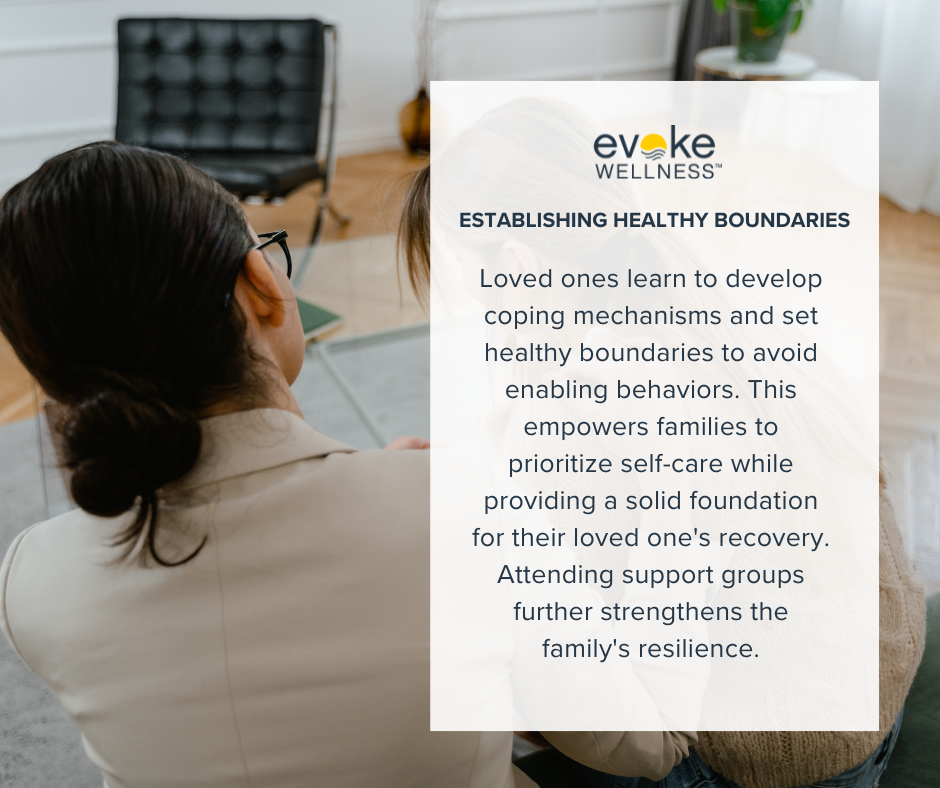The journey to overcome addiction is arduous, but you don’t have to face it alone. As you embark on the critical first step of drug detox, emotional support plays a vital role in your success and well-being. Recent studies show that patients who receive comprehensive emotional support during detox are 40% more likely to complete the process successfully. At Evoke Wellness at Hilliard, we understand the challenges you face. Our evidence-based approach integrates cognitive behavioral therapy (CBT), dialectical behavior therapy (DBT), group sessions, and individual counseling to provide the emotional scaffolding you need. By addressing both the physical and psychological aspects of addiction, we empower you to build a strong foundation for lasting recovery.
Together, let’s embrace the journey to recovery and the promise of a new beginning. Call us at (833) 949-1347 today or reach out online.
Understanding the Emotional Impact of Detoxification
The Rollercoaster of Emotions
Detoxification from drugs or alcohol is a crucial first step towards recovery, but it can also be an emotionally tumultuous process. As the body rids itself of substances, the brain struggles to regain equilibrium, triggering a rollercoaster of emotions. Anxiety, depression, mood swings, irritability, and powerful cravings are common psychological effects experienced during withdrawal.
While these emotional challenges are a normal part of detox, they can be overwhelming without proper support. That’s why seeking professional help at a reputable detox center is so crucial. Medical experts can provide medications to ease physical symptoms while also offering therapies to address the emotional side of detox.
Comprehensive Support for Lasting Recovery
Effective treatment takes a comprehensive approach, combining medical care, counseling, and holistic practices like Cognitive Behavioral Therapy (CBT) and Dialectical Behavior Therapy (DBT). These evidence-based techniques help individuals develop healthy coping strategies and build resilience against relapse.
Moreover, addressing any underlying mental health conditions that may have contributed to addiction, such as trauma, anxiety, or depression, is key to achieving lasting recovery. Building a strong support network through gender-specific programs or group therapy can further aid in navigating the emotional turmoil of detox.
Embracing Discomfort as a Path to Healing
While the detox process can undoubtedly be challenging, it’s important to embrace the discomfort as a necessary step towards healing and reclaiming emotional well-being. With professional guidance and a commitment to the journey, individuals can emerge from detox with a newfound sense of strength and resilience, ready to embark on the next phase of their recovery.
Addressing the Emotional Challenges with Individualized Therapies
The emotional toll of addiction and the detox process can be overwhelming, leading to feelings of anxiety, depression, and even post-traumatic stress disorder (PTSD). At Evoke Wellness, we recognize the critical importance of addressing these emotional challenges through personalized therapies tailored to each individual’s unique needs and experiences.
Evidence-Based Psychotherapies
Cognitive Behavioral Therapy (CBT) and Dialectical Behavior Therapy (DBT) are powerful evidence-based psychotherapies that play a pivotal role in our treatment approach. CBT helps patients identify and modify negative thought patterns and behaviors, while DBT equips them with skills for emotion regulation, distress tolerance, and interpersonal effectiveness.
Tailored Individual and Group Support
In addition to these proven therapies, we offer individual and group counseling sessions designed to provide a supportive and understanding environment. Individual therapy allows our clinicians to address each person’s specific emotional and psychological needs, while group therapy fosters a sense of community, shared experiences, and peer support.
Holistic Healing and Family Involvement
Our comprehensive approach also incorporates complementary therapies like mindfulness practices, art therapy, and wellness activities to promote overall mental and physical well-being. We recognize the profound impact addiction has on families, which is why our family therapy program is an integral part of our treatment, helping loved ones understand the disease, develop healthy coping mechanisms, and rebuild trust and communication.
At Evoke Wellness, we understand that emotional healing is just as crucial as physical healing during the detox process. Our medical professionals provide 24/7 monitoring and care, ensuring a safe and supportive environment as patients navigate the emotional ups and downs of recovery. By addressing the emotional challenges with individualized therapies, we aim to equip our patients with the tools they need for lasting sobriety and a fulfilling life in recovery.
Group Therapy and Shared Recovery Experiences
The Power of Connection
Overcoming addiction is a deeply personal journey, yet one that is often made easier by the support and understanding of others walking a similar path. Group therapy sessions provide a powerful opportunity for individuals to connect, share their experiences, and learn from one another in a safe, non-judgmental environment. As noted by Evoke Wellness Ohio, these sessions allow patients to feel less isolated and alone, fostering a sense of community that can be invaluable in the recovery process.
Mutual Support and Accountability
Through group therapy, participants can offer mutual encouragement, hold each other accountable, and celebrate shared successes. This shared recovery experience not only provides emotional support but also practical insights and strategies for navigating challenges such as cravings, triggers, and relapse prevention. As highlighted in their blog, peer support can empower individuals, promote understanding, and create a sense of connection that is crucial for long-term recovery.
Practicing Coping Skills
Many group therapy programs, such as those incorporating Dialectical Behavior Therapy (DBT) or Cognitive Behavioral Therapy (CBT), focus on developing essential coping skills. In DBT groups, individuals learn and practice mindfulness, emotion regulation, interpersonal effectiveness, and distress tolerance techniques together. This collaborative learning environment allows participants to apply new strategies, receive feedback, and gain confidence in their ability to manage triggers and maintain sobriety.
Fostering Long-Term Recovery
As individuals progress through detox and rehabilitation programs, group therapy remains a vital component of their continuum of care. According to Evoke Wellness Ohio, group counseling sessions help individuals build a strong foundation for lasting recovery after completing medically supervised detox. Ongoing participation in group therapy or support groups can provide a sense of accountability, reinforcement of healthy coping mechanisms, and a reminder that they are not alone in their journey, even after formal treatment has ended.
By embracing the power of shared recovery experiences through group therapy, individuals can find the emotional support, practical tools, and lasting connections they need to overcome addiction and maintain long-term sobriety.
Holistic Treatments to Address the Emotional and Mental Challenges
Mindfulness and Meditation Practices
During detox, mindfulness techniques like meditation, deep breathing exercises, and yoga can be invaluable tools for managing intense emotions and cravings. According to a study on mindfulness-based interventions, these practices have been shown to reduce cravings by up to 20% and decrease relapse rates by 30%. Cultivating present-moment awareness and acceptance helps individuals ground themselves during difficult moments, rather than reacting impulsively.
Therapeutic Modalities
Integrating evidence-based psychotherapies is crucial for addressing the complex emotional challenges that often co-occur with substance abuse disorders. Cognitive Behavioral Therapy (CBT) and Dialectical Behavior Therapy (DBT) equip individuals with skills to identify and modify negative thought patterns, regulate intense emotions, and develop relapse prevention strategies. Group and individual counseling sessions provide a supportive environment for exploring underlying psychological factors and rebuilding emotional resilience.
Holistic Healing Approaches
Holistic healing practices like yoga, acupuncture, and art therapy can complement traditional therapies by promoting mind-body connection and overall well-being. These approaches offer healthy outlets for stress relief, improve sleep quality, and provide opportunities for self-expression during the challenging detox process. Additionally, incorporating proper nutrition and supplements can help restore biochemical balance and support the body’s natural healing processes.
Family and Community Support
Involving loved ones through family therapy is invaluable for addressing the systemic impact of addiction and rebuilding trust and communication within the family unit. Building a strong support network, including peer groups and community resources, can provide a constant source of encouragement, accountability, and a solid foundation for sustained recovery beyond the initial detox phase.
By integrating a comprehensive range of holistic treatments and therapeutic modalities, individuals undergoing detox can effectively navigate the emotional and mental challenges of the recovery journey, fostering a path towards lasting sobriety and overall well-being.
Family Involvement in the Recovery Process
Rebuilding Trust and Communication
During the detox phase, family therapy plays a crucial role in addressing the systemic impact of addiction. Substance abuse often strains relationships, leading to emotional turmoil and a breakdown in trust. Family therapy helps rebuild open communication, fostering an environment of understanding and support.

Aftercare and Relapse Prevention
Creating a soothing, trigger-free home environment is crucial after detox. Family members can declutter, remove temptations, and nurture physical and mental well-being. Celebrating milestones reinforces the individual’s motivation and commitment to lasting change.
Continuum of Care
Comprehensive treatment approaches integrate family involvement throughout the continuum of care. From residential rehabilitation to intensive outpatient therapy, loved ones play a vital role in supporting the individual’s journey towards sustained sobriety.
Family Healing
At Evoke Wellness, family healing is recognized as vital to the patient’s long-term success. Through family therapy, education, and involvement in treatment, trust is rebuilt, and communication improves, fostering a supportive environment for lasting recovery.
Continuous Monitoring and Psychological Support
Around-the-Clock Observation and Care
Thorough emotional monitoring is imperative throughout the detox process. Medically supervised programs provide 24/7 care from trained professionals to assess psychological symptoms and provide immediate support. This continuous observation allows for timely interventions and medication adjustments to manage cravings, anxiety, depression, or other mental health challenges that may arise.
Integrated Therapeutic Approaches
Beyond medical stabilization, comprehensive detox centers integrate psychological therapies to address the emotional roots of addiction. Evidence-based modalities like cognitive-behavioral therapy (CBT) and dialectical behavior therapy (DBT) help patients develop coping mechanisms, regulate emotions, and identify negative thought patterns fueling substance abuse.
Group and individual counseling sessions foster a supportive environment for exploring underlying issues and building a strong recovery foundation. This holistic approach prepares individuals for the next phase of rehabilitation, equipping them with resilience against future triggers and stressors.
Personalized Care for Dual Diagnoses
For those with co-occurring mental health disorders, targeted dual diagnosis treatment is crucial. Specialized therapists collaborate closely with medical staff to develop integrated care plans tailored to each patient’s unique psychological needs. Appropriate medications may be prescribed to stabilize mental health symptoms alongside withdrawal management, promoting overall well-being during this vulnerable stage.
Monitoring Progress and Continuous Adjustments
Regular emotional assessments throughout detox allow care teams to monitor progress, identify setbacks promptly, and adjust treatment strategies accordingly. This personalized approach ensures each individual receives the right level of psychological support at every stage, maximizing their chances of completing detox successfully and transitioning smoothly into comprehensive addiction treatment.
Conclusion
As you navigate the challenging journey of drug detox, remember that emotional support is not just helpful—it’s critical for your success. Recent studies show that patients who receive comprehensive emotional support during detox are 40% more likely to complete the process successfully. By engaging in evidence-based therapies like CBT, DBT, group sessions, and individual counseling, you’re giving yourself the best possible chance at lasting recovery. These approaches provide the tools and coping strategies necessary to manage the intense emotions that arise during detox. Remember, seeking help is a sign of strength, not weakness. With the right support system and therapeutic interventions, you can overcome addiction and build a healthier, more fulfilling life.
Begin Your Journey with Evoke Wellness at Hilliard
If you or a loved one is considering treatment, Evoke Wellness at Hilliard invites you to contact us. Our compassionate team is ready to answer your questions, discuss your needs, and help you take the first steps toward recovery. In Hilliard, you’ll find more than just a treatment program – you’ll discover a community dedicated to your wellness and success. Together, let’s embrace the journey to recovery and the promise of a new beginning. Call us at (833) 949-1347 today or reach out online.



